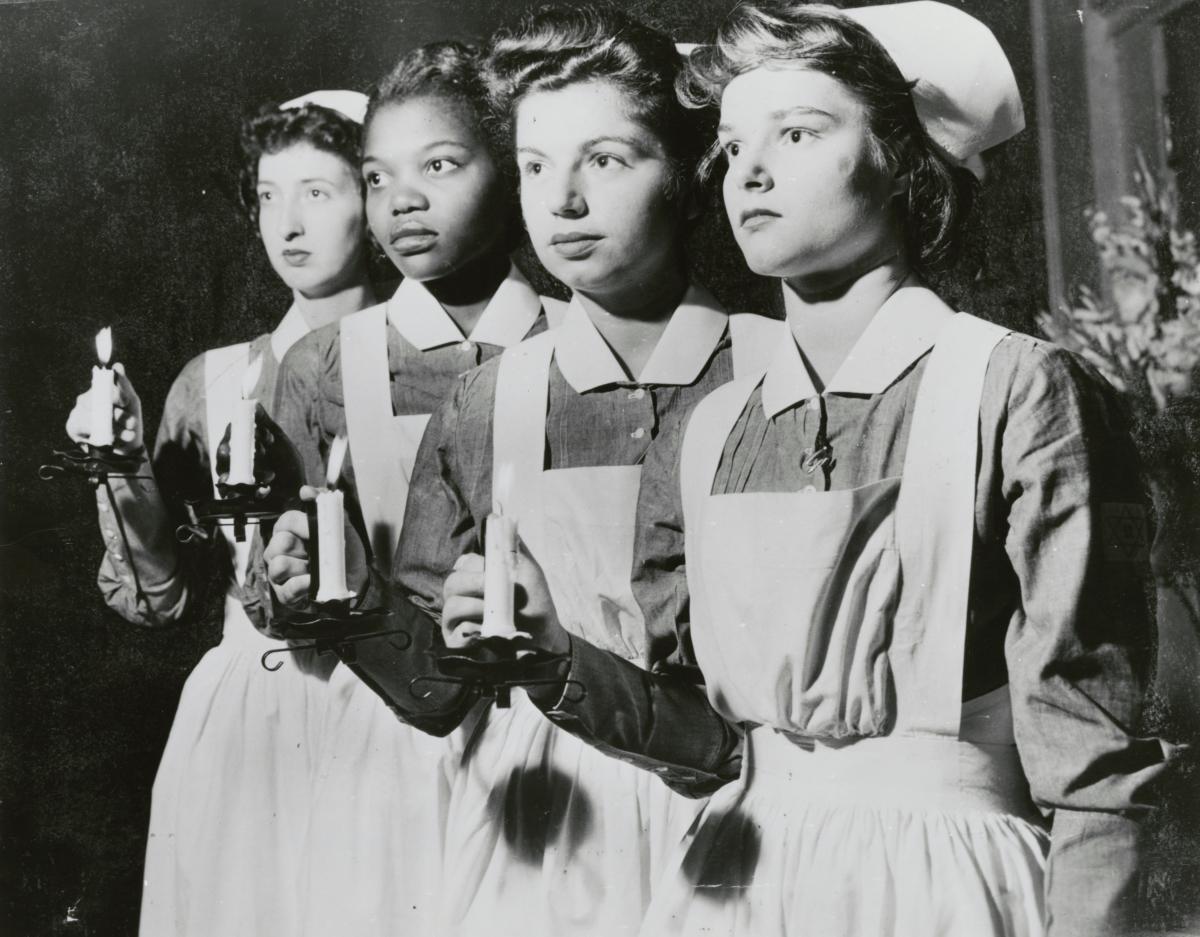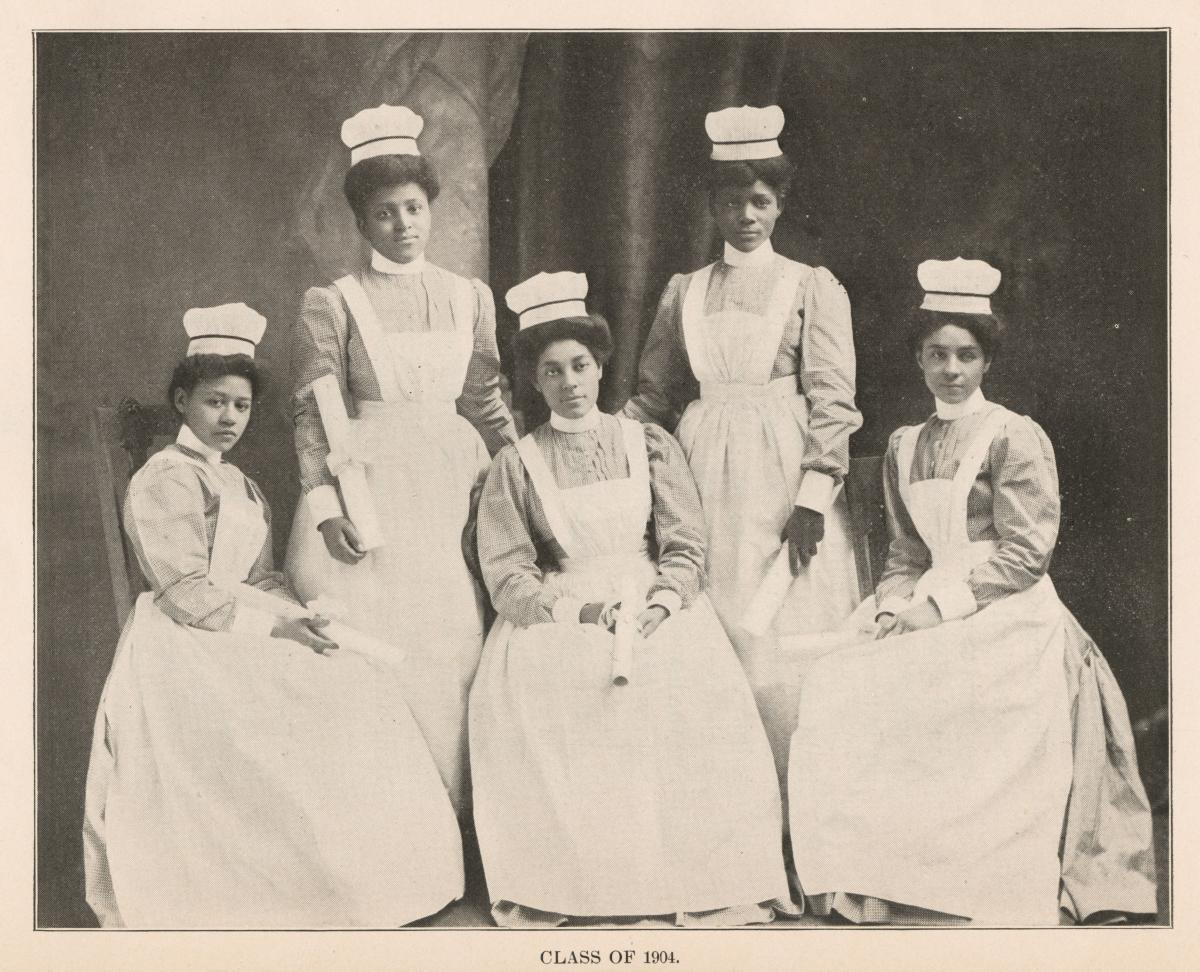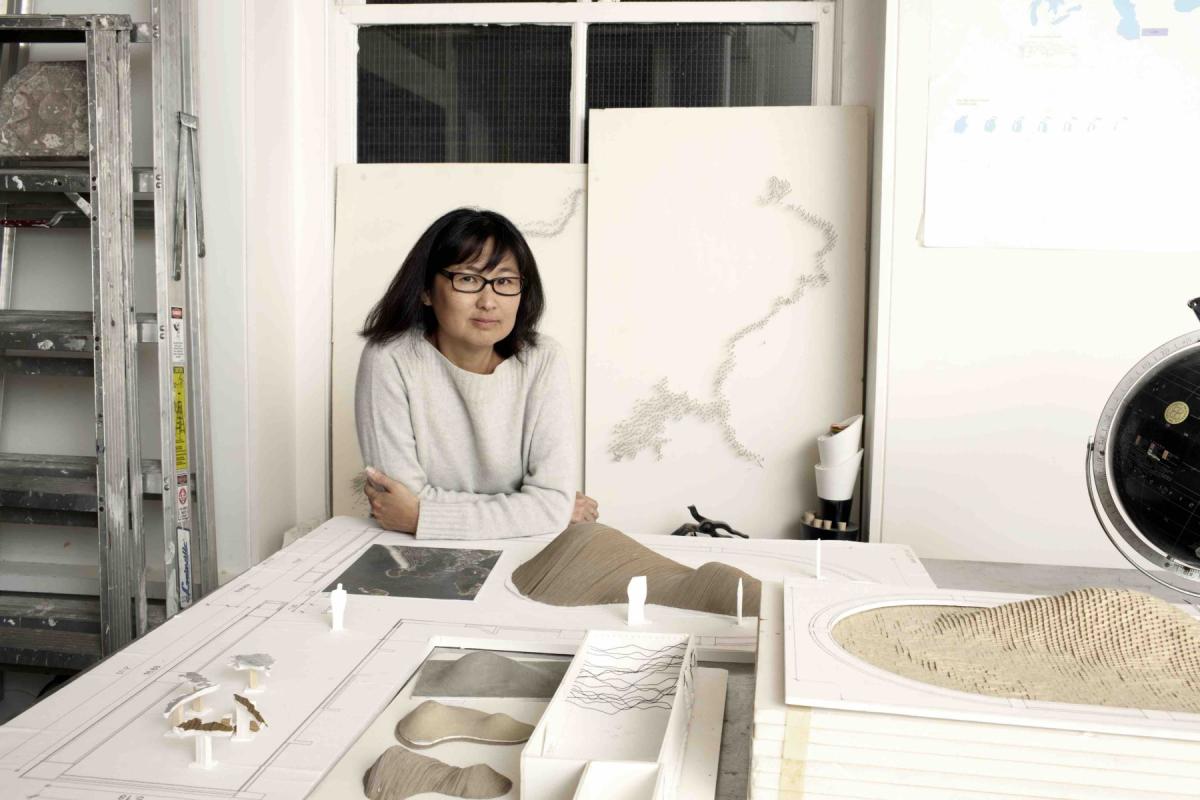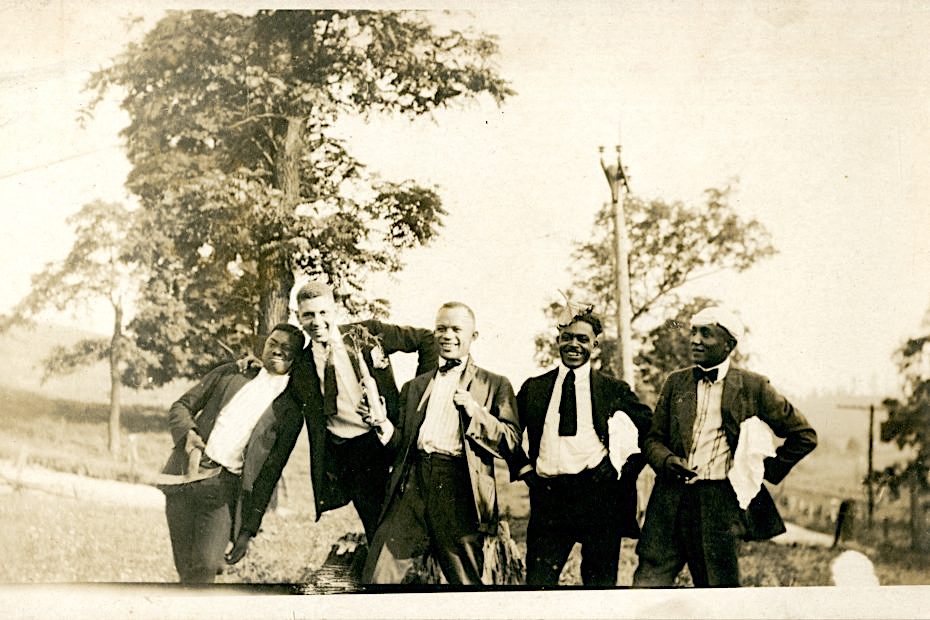
NHPRC News
April 2024
Inside the Commission
Commission to Meet May 24
The National Historical Publications and Records Commission will meet in person on May 24, 2024 to recommend grants, discuss public policies, and approve NHPRC processes and procedures. The policy discussion is open to the public, and if you are interested in attending, please email nhprc@nara.gov by May 17, 2024.
Grant Opportunities
Major Collaborative Archival Initiatives
For collaborative projects that will significantly improve public discovery and use of major historical records collections.
Final Deadline: May 8, 2024
Archives Collaboratives
For projects to plan and develop a working collaborative designed to enhance the capacity of small and diverse organizations with historical records collections.
Final Deadline: May 8, 2024
State Board Programming Grants
For projects that strengthen the nation’s archival network through activities undertaken by state historical records advisory boards.
Final Deadline: May 8, 2024
Publishing Historical Records in Collaborative Digital Editions
For projects to publish documentary editions of historical records. This program has two application cycles.
First cycle Deadline: May 8, 2024
Second Cycle:
Draft Deadline: August 15, 2024
Final Deadline: November 7, 2024
News from the Field
Teaching Care
Here's to the nurses, the backbone of the healthcare system, who take good care of us all.
The NHPRC is proud to support a collaborative project at the University of Illinois, Chicago called “Teaching Care: Building a history curricular library of Chicago’s Black nurses,” an initiative of the Midwest Nursing History Research Center in collaboration with the Black Metropolis Research Consortium. The team will create a curricular library of lesson plans, built from primary archival sources and previously collected oral histories, to engage students in middle school, high school, undergraduate nursing and graduate nursing education.
The project has put together an interactive online exhibit at https://mappingcare.digital.uic.edu/page/index
Maya Lin and the Museum of Chinese in America
Maya Lin is perhaps best known for her design of the iconic Vietnam War Memorial in Washington, DC, but she has also designed the Civil Rights Memorial in Montgomery, Alabama, Wave Field at the University of Michigan, the renovation and reconfiguration of the Neilson Library and its grounds at Smith College, and "Ghost Forest," a project in Madison Square Park. among others.
She is also known for her work with The Museum of Chinese in America in New York City. With support from the NHPRC, the Museum launched a three-year project to digitize and make accessible online 150 oral histories drawn from 11 of the Museum’s oral history collections, including: Waves of Identity; 8th Avenue in Sunset Park; Chino-Latino interviews; Performing Chinese America; 9/11 Chinatown documentation; Tales of gentrification in Chinatown; Chinese American fashion designers; Stories of Chinese American food and identity; and the Chinese American Diaspora. These audio and video recordings document a wide range of lived experiences of Chinese Americans across the United States.
As part of the project, they are archiving the Journey Wall, a custom art installation created for the museum’s lobby by artist/designer Maya Lin. The wall is composed of bronze tiles through which Chinese Americans can permanently honor and remember their family roots. Each tile bears the name of an individual or family, their ancestral home, and current place of residence in America. The wall highlights the expansiveness of the Chinese American Diaspora and the diversity of immigration stories from across the country - from artists to businessmen. The interviews in this collection are the stories of the Chinese American families that are part of the Journey Wall installation. During the grant period, 19 oral history interviews for the Journey Wall Collection were digitized.
You can read more about Maya Lin at https://www.mocanyc.org/.../learn-about-moca-hero-maya-lin/
You can visit the Journey Wall at http://ohms.mocanyc.org/interviews.php
20th Century Women’s Legacy Archive in Utah
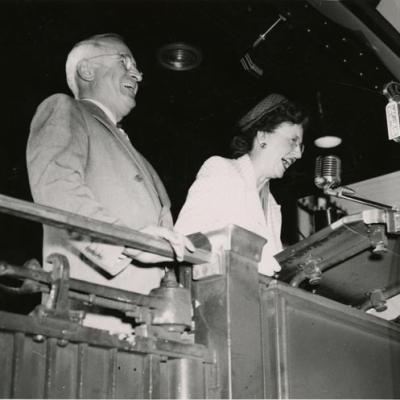 In 1932, Reva Beck Bosone, often with her two-year-old daughter Zilpha in her arms, campaigned door to door for a seat in the Utah House of Representatives, Utah's first female judge, and the first woman elected from Utah to serve in the U.S. House of Representatives. She was also Utah's first woman judge, a post she held until 1948. Here she is shown sharing a laugh with President Harry S Truman. Her papers are at the University of Utah, and a finding aid is available at https://archiveswest.orbiscascade.org/ark:80444/xv79031?q=Bosone
In 1932, Reva Beck Bosone, often with her two-year-old daughter Zilpha in her arms, campaigned door to door for a seat in the Utah House of Representatives, Utah's first female judge, and the first woman elected from Utah to serve in the U.S. House of Representatives. She was also Utah's first woman judge, a post she held until 1948. Here she is shown sharing a laugh with President Harry S Truman. Her papers are at the University of Utah, and a finding aid is available at https://archiveswest.orbiscascade.org/ark:80444/xv79031?q=Bosone
While it may be relatively easy to find Reva Beck Bosone in the archives, it is not always the case where women are concerned, due to metadata issues. Even at places such as the Aileen H. Clyde 20th Century Women’s Legacy Archive at the University of Utah.
To remedy that situation, the NHPRC is supporting the university's J. Willard Marriott Library to undertake a project to review, update, or create at least 400 collection finding aids related to women, create at least one LibGuide informing patrons of the existence of these archival collections and teaching them how to access the materials, and create at least one exhibition allowing university and community patrons to learn about women’s contributions to Utah and regional culture and history.
And to learn more about Reva Beck Bosone, visit a digital exhibition at the Marriott Library at https://exhibits.lib.utah.edu/s/aileen-h-clyde-20th-century-women-s-legacy-archive/page/reva-beck-bosone
Black Joy & Resilience
“Libraries and archives have long needed to broaden their understanding of Blackness to encompass acts of resilience and joy. This project not only expands the archive by incorporating the vastness of the Black experience, but it centers Black voices. I am excited to highlight Black joy by activating the library and leveraging archival collections in new and exciting ways.” -- Mikayla Brown, director of the Black Joy and Resilience project.
With support from the Mellon Foundation, the NHPRC is delighted to support a planning grant to the Philadelphia Area Consortium of Special Collections Libraries for a collaborative digital edition to document, interrogate, and illustrate stories of Black joy and resilience in the greater Philadelphia area. In collaboration with Princeton University, the Stoutsburg Sourland African American Museum, Historic Germantown, and Temple University Libraries, the Philadelphia Area Consortium of Special Collections Libraries (PACSCL) intends to focus on stories of Black joy not just amid anti-Blackness, but in defiance of it.
Spanning the 19th through 21st centuries, the stories will be derived from collections held by a dozen or more repositories in and around Philadelphia. Three broad categories will guide the search for relevant archival records: play through laughter, amusement, and entertainment; relationship and community building; and growth through achievement and overcoming challenges.
For more on the project, go to https://pacscl.org/bjr/
The Eastland Disaster
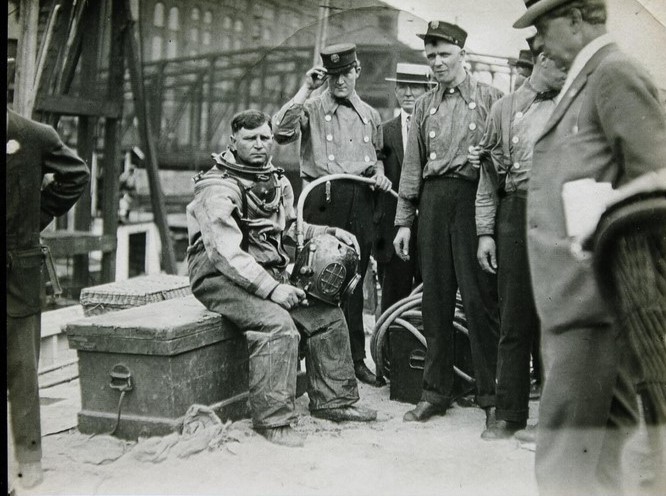 The expression on this rescue diver's face says it all. On July 24, 1915, Western Electric's Hawthorne Works had chartered four steamers to take employees to a company picnic in Indiana. Some 2,500 people crowded on to the S.S. Eastland in Chicago, overcrowding the boat, causing it to overturn in the Chicago River. Despite being close to the wharf, 844 people died, one of the great tragedies of the era.
The expression on this rescue diver's face says it all. On July 24, 1915, Western Electric's Hawthorne Works had chartered four steamers to take employees to a company picnic in Indiana. Some 2,500 people crowded on to the S.S. Eastland in Chicago, overcrowding the boat, causing it to overturn in the Chicago River. Despite being close to the wharf, 844 people died, one of the great tragedies of the era.
For years documents recording that history were stored by the Eastland Disaster Historical Society but were largely inaccessible. Thanks to a grant from the Illinois State Historical Records Advisory Board, a collection of photographs, postcards, death records and other materials related to the disaster are available for students, researchers, historians and descendants of victims and survivors to access from the Newberry Library.
The grant, made possible from the NHPRC, will help the Newberry digitize the collection and make it accessible to all. For more on the story, go to https://www.newberry.org/news/newberry-to-complete-acquisition-of-eastland-disaster-collection
Alternate Roots
 Initiated by the Highlander Center, representatives of 15 theaters and 6 individuals gathered for a weekend in August 1976 to discuss and explore mutual interests and common cause. This meeting led to the creation of Alternate ROOTS, a member-driven national resource for artists and cultural organizers, seeking to champion social and economic justice and the work of people in the arts.
Initiated by the Highlander Center, representatives of 15 theaters and 6 individuals gathered for a weekend in August 1976 to discuss and explore mutual interests and common cause. This meeting led to the creation of Alternate ROOTS, a member-driven national resource for artists and cultural organizers, seeking to champion social and economic justice and the work of people in the arts.
After many years of searching and precarious storage, Alternate ROOTS archive found an institutional home at Amistad Research Center in New Orleans. They were so thrilled with the partnership, Alternate Roots held a dance party to celebrate the new home for their archives. Watch it (you will be dancing, too) at https://alternateroots.org/alternate-roots-archives-at-home-at-amistad/
Now through an NHPRC grant, Amistad will process 112 linear feet of the records of Alternate ROOTS from 1975-2017. The project will create an online finding aid to the record, digitize and create metadata for all of the collection’s moving image and sound recordings, and digitize 10% of the photographs in the collection and make them available through the Louisiana Digital Library. A series of online webinars that support community-based archiving will be offered.
For more on this story, go to https://www.amistadresearchcenter.org/single-post/amistadalternateroots
 Subscribe to our mailing list to receive NHPRC News and other special announcements.
Subscribe to our mailing list to receive NHPRC News and other special announcements.
